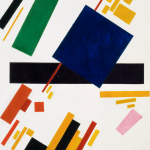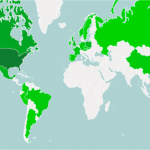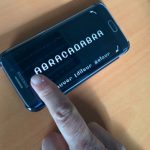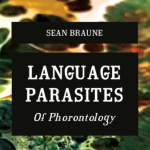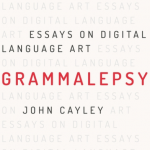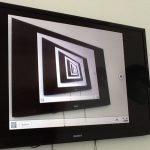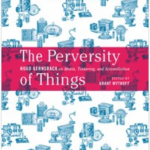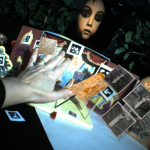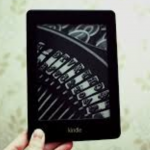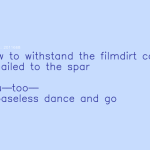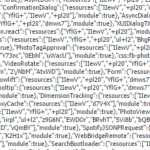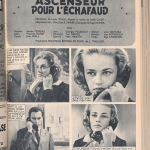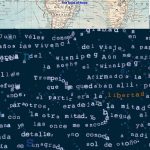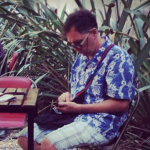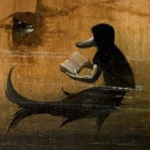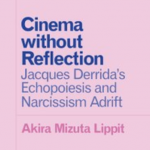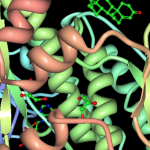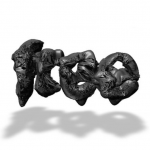2018
Dani Spinosa, who edited and introduced the Dubai gathering, endorses Hayles' position on the collaborative, cognitive, and (not least) communal potential of human-computer co-authorship.
In her essay, Egyptian elit scholar Reham Hosny observes and quantifies the ways that Arabic electronic literature has been historically underrepresented in the predominant critical venues like the ELO's Electronic Literature Collections and other central repositories for the dissemination and study of e-lit. Rather than simply observing this vacancy, however, Hosny proposes real, practical methods for addressing and bridging this discrepancy, bringing new works to light and encouraging translation, open access, and consideration of the language-based and nationalist biases in the scholarship surrounding elit.
In this essay, Serge Bouchardon looks to electronic literary and its important predecessors in a way that prioritizes gesture and manipulation. Bouchardon interrogates how technology alters and opens the way that literature can be materially engaged-with by its readers, a way that deliberately encourages its readers to engage physically and agentially with the text. In this way, Bouchardon reveals a way of critiquing electronic literature that expands upon the physically-engaging properties of print.
O'Sullivan's essay appears at about the same time as a post to the Electronic Literature Organization list, revealing details of the Summer 2019 ELO Conference & Media Arts Festival, to be hosted by O'Sullivan at University College Cork, Ireland: http://elo2019.ucc.ie/
For a journal like ebr, long devoted to peer-to-peer reviews (of writers for and by writers), the engagement by Jhave with Sean Braune's Language Parasites suggests a variation on that model. Their parasite-to-parasite encounter bodes well to supplement (if not overtake) the hidden, professionalized peer review models that keeps all of us so busy and so hidden from view - of one another, not to mention our potential audiences. What better outcome for born digital scholarship than the replacement of "double blind" peer review with a "phorontology" of ties that bind, "[extending] its embrace to all"?Sean Braune's publisher has offered ebr readers a free pdf of Language Parasites. Print versions can be ordered from Punctum Books
From an author celebrated for a career devoted to the digital, Cayley's book offers a cogent demonstration that "verbal language has been ideologically fettered to the medium of print for far too long." Ensslin, in her riposte, notes how Cayley's venture into a pre-digital format resonates with numerous recent works (in print and online; creative and critical), offering a "much-needed pathway out of institutionalized literary systems and practices.
Aquilna reflects on the reflections in Callus and da Silva's "Strange Metapaper."
A timely revaluation of Hugo Gernsback, the Luxembourgish-American tinkerer who regarded science fiction not merely as a literary form or fantastic escape, but also, according to Grant Wythoff, as a way for readers to interact with and reflect on media and (not least) to know where tools can be found to gather knowledge on their own. More of a community of tinkerers than a literary movement or social media network, Gernsback's early and amateurish engagements with technology can help us to gauge what is lost in the transition to corporatist black boxery.
Cayley's book, Grammalepsy, is the first in the Bloomsbury series on Electronic Literature, due out this year (2018). A symptom of language whose therapeutic potentialities are passed over by commercial digitization, the term “Grammalepsy” suggests a lapse in designation. Cayley's book can remind us of the generative difference in any act of signification, in writing on a page no less than coding on silicon. There is no reason why the latter, so different from our neurological circuits, should be any better than any other conventional designation at encapsulating and communicating thought. The fact that literary theorists (and also digital makers like Cayley) place their work and thought self-consciously in the margins of what is now a digital consensus, suggests the presence of a long-standing (and continuing) literary counter-history to the Digital Humanities, that are too often characterized by datafication, single-entendre designation, and instrumentalist tendencies.
Indirectly responding to Callus's and Aquilina's essay, Anna Nacher finds a 14th way of describing e-literature: employing the Deleuzean concept of a “minor“ style.
Agreeing that translation studies does well to address questions of transcoding, Nick Montfort further extends the project advocated by Maria Mencia, Soeren Pold, Manuel Portela (and our first respondent, Belgian Poet Laueate Jan Baetans). A look at explorations of the topic in early e-lit turns up longstanding interests in the translinguistic, transcreational, the metrical, material, and contextual. Montfort offers this itemization not just to enlarge a specific list and topology for translation studies, but to show that the concept of literary translation almost certainly needs to be exploded and reworked.
In a paper presented at the “Arabic Electronic Literature" conference in Dubai (February, 2018), N. Katherine Hayles considers born digital writing as a cognitive assemblage of technical devices and readerly, interpretive activity.
In response to Mencia, Pold, and Portela, Belgian poet and scholar Jan Baetans suggests that we might view the field of trans-medial literature as an offshoot of translation studies (and not the reverse). In any case, whether we approach e-lit from a medial or linguistic standpoint, scholars do well to observe a "merger of translation and adaptation studies."
In response to Baetans's essay, David Roh sees an occasion for moving digital literary studies beyond the archive toward a a living repository of anarchistic, ongoing communitarian activity with a "resurgent cultural impact."
"[T]ranslation is merely a preliminary way of coming to terms with the foreignness of languages to each other." (Walter Benjamin, "The Task of the Translator" [1921])
Adrian Miles (1960 — 2018) was an early theorist, practitioner and teacher of cinematic hypertext and networked, "writerly" video. In memory of his innovative research in these fields, ebr presents this short dialogue between Adrian and founding ebr publisher Mark Amerika. The text is republished from META/DATA: A Digital Poetics, by Mark Amerika, with permission from The MIT Press.
Repetition, gestural abstraction and depictions of noise; anabsence of narrative causation, a multiplicity of micro-narratives and opacity of material communications: The digital narrativity observed and created by Will Luers is equally applicable to the films of Stanley Kubrick or the paintings of Hieronymous Bosch - which implies a longer continuity (and less radical transformation?) than we might have expected. Indeed, Luers argues that "networks and nonlinear systems" might better be understood as "something deep in our brains," even as narrative may be regarded "as a necessary construct, but not the complete picture of reality."
If it's true, as Leiya Lee argues, that Akira Mizuta Lippit turns Derridean theory into a system, then it's a system grounded in ghostly presences (not least Derrida's own presence in film).
2017
David Jhave Johnston responds to Theadora Walsh's review of his book Aesthetic Animism: Digital Poetry's Ontological Implications.
A review of Aesthetic**Animism, so vulnerably personal, and at the same time so pragmatically organized, that it might just suggest a possible future for scholarly and creative scholarship: a digital practice that (in Jhave's words) "distends selves towards collectivities that remind it of oblivion." For the moment, that inevitability is avoided by the book's receipt of the 2017 N. Katherine Hayles Award for Criticism of Electronic Literature.
